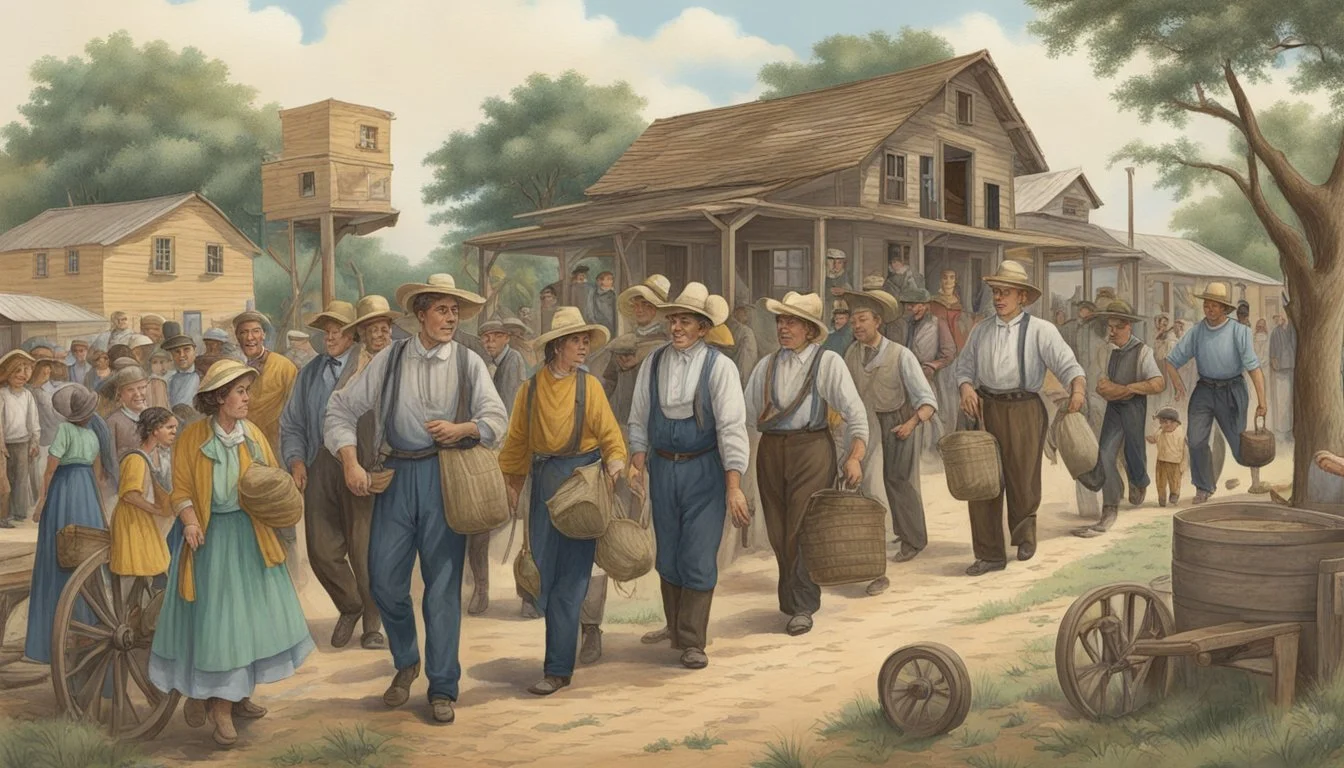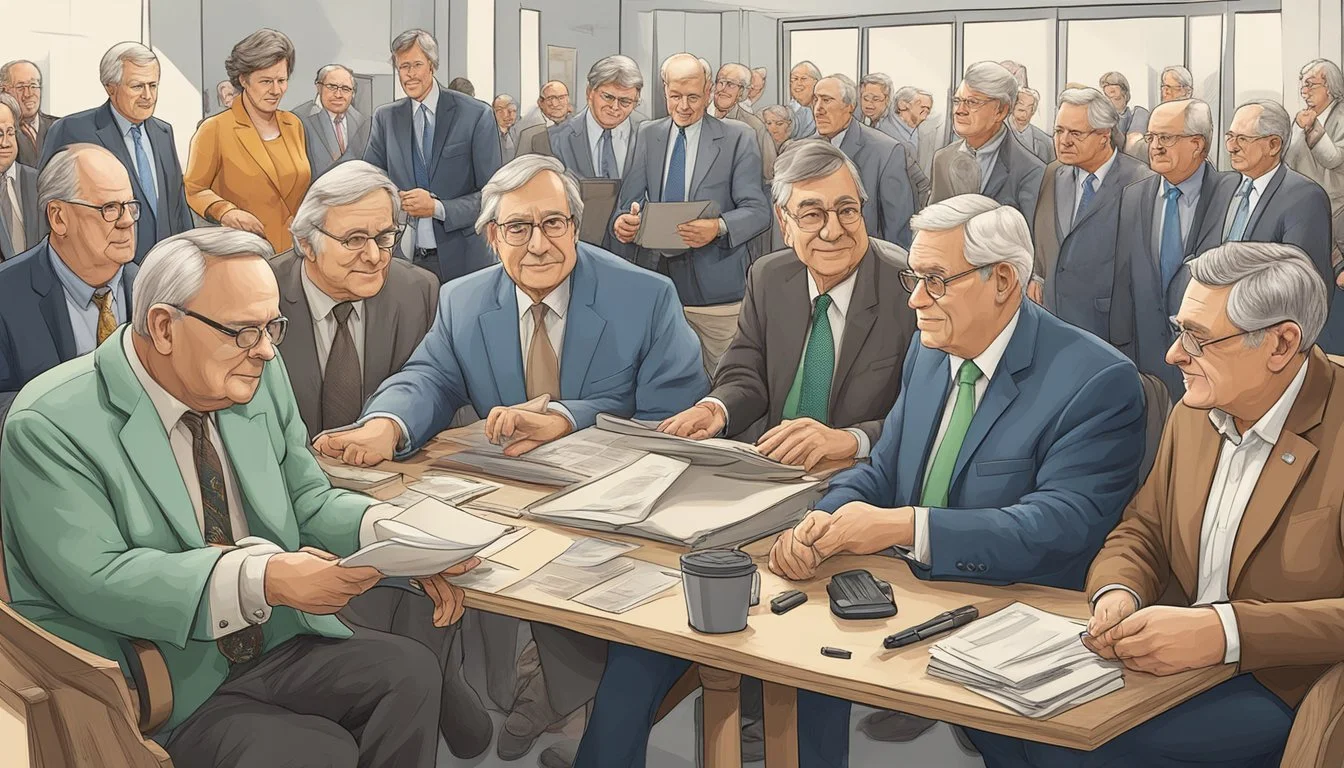German Texan Politicians and Their Impact on State Politics and Policy
The cultural mosaic of Texas politics has been notably influenced by German-Texan politicians who have shaped the state’s legislative landscape. The inculcation of German immigrants in Texan society dates back to the 19th century, with a notable German presence in Texas from as early as 1850. Over the subsequent decades, German-Texans not only contributed to the population growth but also to the socio-economic and political development of the region.
Politically, German-Texans navigated complex issues such as immigration, settlement, and civil liberties. Their impact spanned several domains, noticeably with individuals like Gustav Schleicher who served in the U.S. Congress between 1875 and 1879. He was instrumental in advocating for policies that spurred railroad construction, vital for Texas’s economic expansion, and that incentivized further immigration.
Their political engagement, however, was not without controversy, especially in times of national conflict. During World War I, the German-Texan community faced severe discrimination, including legislative actions that targeted their language and heritage. Despite such challenges, many German-Texans remained active and contributed valuably to the Texan war effort, demonstrating a complex allegiance to both their heritage and their chosen homeland. Their experiences underscore the multifaceted role German-Texan politicians played in shaping Texas, testifying their pivotal role in the state's evolving political narrative.
Historical Background of German Immigration to Texas
The influx of German settlers to Texas during the 19th century played a pivotal role in shaping the social and cultural fabric of the state. They established thriving communities, contributing to its development and diversity.
Early Settlements and the Adelsverein
The Society for the Protection of German Immigrants in Texas, also known as the Adelsverein, orchestrated a significant part of German emigration to Texas. In the 1840s, this society aimed to create new opportunities for Germans by establishing settlements in the Republic of Texas. They facilitated the journey for many immigrants who sought economic prosperity and political freedom. The Adelsverein was responsible for founding New Braunfels in 1845 and Fredericksburg the following year, both of which became prominent German Texan communities.
New Braunfels (Founded: 1845)
Fredericksburg (Founded: 1846)
Major German Texan Communities
Several cities in Texas became hubs for the German diaspora, integrating their culture into the Texan landscape. Key areas included San Antonio, where many Germans settled due to its position as a gateway to Central Texas. By 1850, Germans constituted more than five percent of the Texas population. They formed the western end of what was known as the German Belt and infused Texan society with elements of their heritage.
San Antonio - A critical settlement point for German immigrants.
Central Texas - Home to the German Belt.
Hill Country - Germans contributed to the rugged landscape by establishing farmlands and businesses.
These enclaves fostered strong communities that retained and celebrated their German roots, impacting the cultural mosaic of Texas as a whole.
Social and Cultural Contributions
German Texans have left a significant imprint on the Lone Star State's cultural landscape, influencing various aspects of regional life and retaining elements of their rich heritage.
Impact on Language and Education
German influence in Texas is perhaps most noticeable in language and education. Many communities maintained the German language through both spoken and written forms. It has been taught in universities and schools, reinforcing linguistic diversity. Newspapers like the Neu-Braunfelser Zeitung were published in the German language, serving as a testament to the community's dedication to preserve their mother tongue amid the predominance of English in the United States.
German Texans in Music and Festivals
In the realm of music and festivals, German Texans have made enduring contributions. They introduced a variety of traditional German music styles, which have been incorporated into the wider Texan music scene. Annual celebrations such as Oktoberfest and Wurstfest accentuate German music, dance, and traditional attire. These festivals not only celebrate German culture but also contribute to the multicultural tapestry of American society, drawing visitors from across the state and country.
Preservation of German Heritage
Efforts to preserve German heritage are evident in the conservation of historic sites and the promotion of cultural events by German Texans. Historical societies and cultural groups work to keep these traditions alive, ensuring the legacy of the early German settlers resonates with modern Americans. Recognition and valorization of buildings, historical locations, and the ongoing practice of traditions reflect the importance placed on maintaining this cultural identity. Through these endeavors, the sense of community and continuity of German American heritage in Texas remains robust.
Political Influences and Legislations
German Texans have made significant contributions to political processes in Texas, impacting legislation and advocating for rights during pivotal moments in history.
German Texans in the Texas Legislature
German-Texans have been active participants in the Texas Legislature, often serving in both the House of Representatives and the Senate. Their influence in legislative processes started to become pronounced in the mid-1800s. Johann Friedrich Ernst, often regarded as the father of German immigration to Texas, became involved in local governance, although his direct involvement in state legislation was limited, his status among German-Texans set a precedent for political engagement.
Notable German Texan Politicians in the House of Representatives and the Senate:
Helmut Fritz
Gustav Schleicher
Eduard Degener
These individuals championed various legislations that fostered economic development and civil liberties. They were known for their support of the agriculture industry, which was critical to Texas’s growth.
Advocacy and Civil Rights during the Civil War
German-Texans were unique for their general opposition to slavery during the Civil War, which stood in stark contrast to the prevailing sentiments in Texas at the time. Their advocacy for civil rights often put them at odds with other Texans, leading to political and social tensions.
Key Incidents:
Battle of the Nueces (1862): A clash between pro-Union German Texans and Confederate forces, resulting in the death of many German settlers.
Subsequent Backlash: The defeat did not dampen the German community’s resolve to advocate for civil rights.
Despite the hardships faced during the Civil War, German-Texans left an indelible mark on the state’s political landscape, advocating for values that would slowly gain traction in the following decades.
Economic Impact
German Texan politicians played a significant role in shaping the economic landscape of Texas, particularly through advancements in agriculture, industry, and trade.
Agriculture and Industry Contributions
German immigrants in central Texas and the Hill Country leveraged their expertise to enhance agricultural and industrial production. They introduced various agricultural products, such as wheat, which thrived in the Texan soil. The production of such crops contributed to the sustenance and growth of the local economy. In industry, German Texans founded businesses that became instrumental in the development of San Antonio's economy, influencing both local community life and the broader economic structure of the region.
Key Industries: Textiles, brewing, and farming equipment
Agricultural Products: Wheat, corn, and cotton
Development of Trade and Relations with Mexico
Through their efforts in the legislature, German Texan politicians like Gustav Schleicher supported policies to improve the state's economy by fostering trade relationships with neighboring Mexico. The focus on infrastructure development, particularly transportation, was crucial to facilitate the exchange of goods across the border. This economic strategy not only bolstered trade with Mexico but also played a part in strengthening diplomatic ties.
Trade Commodities: Cattle, cotton, and agricultural machinery
Infrastructure Initiatives: Railroads and trade routes
German Texans during International Conflicts
German Texans played distinct roles during international conflicts, particularly World War I. They experienced significant societal transformations post-World Wars, with implications on their cultural and political landscapes.
Roles during World War I
During World War I, German Texans found themselves in a precarious position due to their heritage. With the United States standing against Germany and the Kaiser, the loyalty of German Texans was often questioned. Consequently, they faced severe repercussions, including physical harm and social ostracization, particularly if they expressed criticism of the war or refused to support war efforts such as purchasing Liberty Bonds. Additionally, policies were implemented to suppress German culture; for example, the Texas Legislature passed House Bill 304 in 1919, which prohibited the teaching of German in public schools, colleges, and universities.
Transformations in German Texan Society Post-World Wars
The societal fabric of German Texans was notably altered after the World Wars, especially in terms of cultural expression and political engagement. German literature and language faced a decline in public use and appreciation, as strict regulations impeded its teaching and normal usage. Despite these challenges, German Texans continued to contribute to politics. By 1846, a German language version of Texas law was instituted, indicating the persistence of their cultural influence. Post-World Wars, German Texans strove to balance their heritage with the broader American identity, continuing to participate in politics while navigating the complexities of national sentiment during times of conflict.







